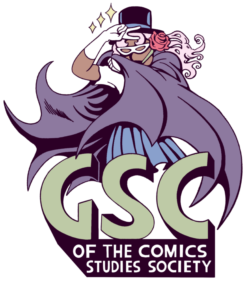Zachary Rondinelli – President
Zachary J.A. Rondinelli (he/him) is a Ph.D. student in Educational Studies at Brock University in St. Catharines, ON Canada. His primary research interests include comics theory, multimodality, and reading/literacy studies. During the COVID-19 pandemic, Zachary was engaged in a social media research project on Twitter called, #WelcomeToSlumberland (@LittleNemo1905). This transactional reading project, which was awarded the 2021 Gilbert Seldes Prize in Public Scholarship by the Comics Studies Society, explored individual and collaborative meaning making practices by engaging in discussion about Winsor McCay’s “Little Nemo” comic strips within the digital social media environment.
Beyond his qualitative research in comics, Zachary has published scholarly work in tba: Journal of Art, Media and Visual Culture, Digital Culture & Education, Inks: Journal of the Comics Studies Society and Canadian Literature: A Quarterly of Criticism and Review. In 2021, Zachary served as a member on the Organizing Committee for the first ever conference dedicated entirely to Canadian comics, “80 Years and Beyond: A Symposium on Canadian Comics” and is the co-editor, alongside CSS Past-President Candida Rifkind, of “Pasts, Presents, and Futures of Canadian Comics,” a Canadian Literature special issue on comics. He is also an active public scholar, having published online scholarship with The Vault of Culture and PopMatters, as well as printed work in Sequential: Canadian Independent Comic Book Magazine and PanelxPanel. Zachary is active on Twitter (@zjarondinelli) and Facebook and always eager to connect with other comics scholars!
Maite Urcaregui – Vice President
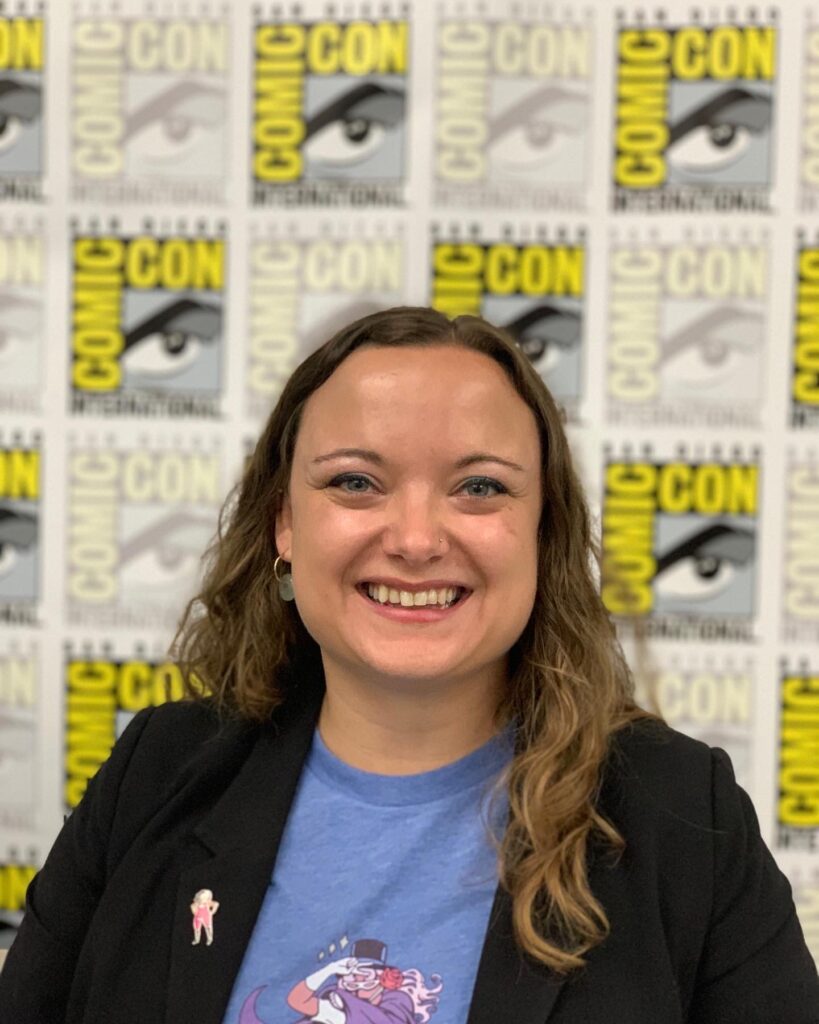
Maite Urcaregui (she/her/hers) is a doctoral candidate in the Department of English at the University of California, Santa Barbara. Her research investigates how multiethnic US authors employ visual poetics to navigate and critique the visual politics of race, particularly as they demarcate national belonging and who is seen as “citizen.” She has published in Prose Studies and has chapters featured in The Routledge Companion to Gender & Sexuality in Comic Book Studies and Gender and the Superhero Narrative. Her public scholarship has appeared in The Black Scholar, The Middle Spaces, and the Eisner Award-winning Women Write About Comics.
Frida Heitland – Secretary-Treasurer
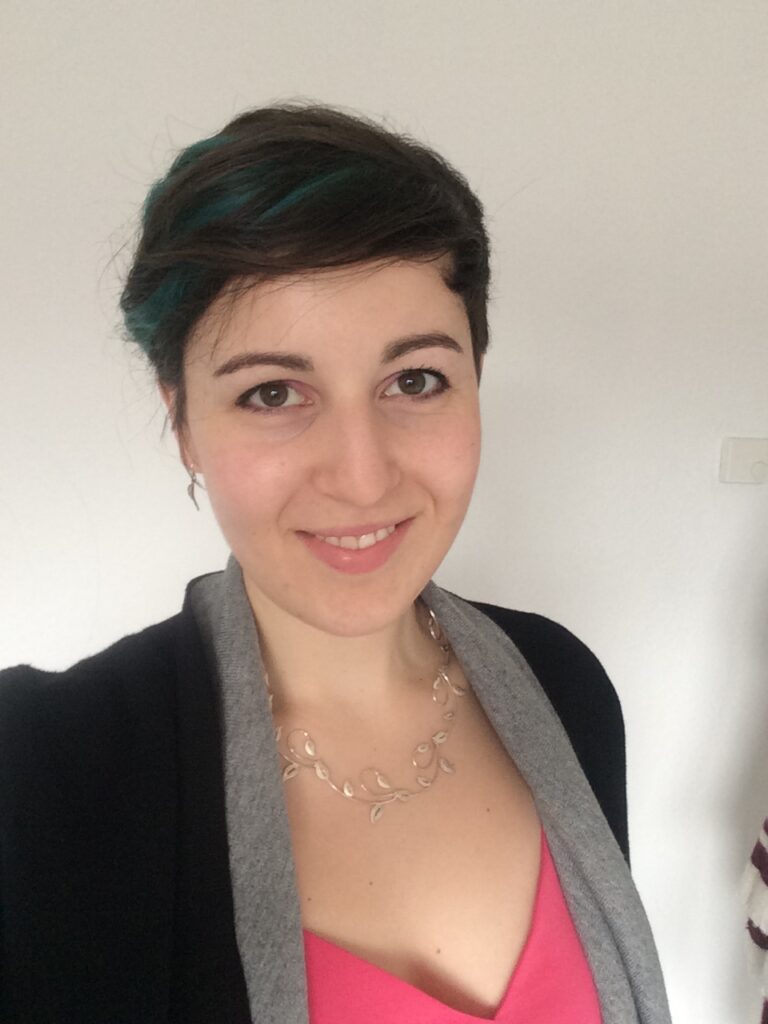
Frida (she/they) is a PhD student at the University of Oregon, pursuing research in comics studies and ecocriticism. Their interest in comics germinated quite innocently while reading Donald Duck and Asterix as a child. It took a more theoretical turn during their undergraduate work on David Mazzucchelli’s Asterios Polyp and questions of (the presentation of) multimodal narrative identity construction. The arising theme of memory lead them to autobiographical works during their master’s and down the (somewhat darker?) rabbit hole of human experience, trauma, and its expression in works by Alison Bechdel, David B., and Katie Green.
During the PhD, their aim is to build on this research and consider how/if comics can express non-human subjectivity, and to investigate corporeal/spiritual hybridity in comics, paying special attention to speculative and/or science fiction comics.
To distract them from the baking distracting them from lockdown, Frida has translated the open access publication How to Study Comics and Graphic Novels (Enrique del Rey Cabero, Michael Goodrum and Josean Morlesín Mellado) into German. The German version will hopefully be available by spring 2023. Frida’s always eager to hear from fellow scholars or private enthusiasts and you can reach them on ResearchGate.
Katlin Marisol Sweeney-Romero – Social Media/Web Head

Katlin Marisol Sweeney-Romero (she/her) is a PhD candidate in the Department of English at The Ohio State University who specializes in Latinx Studies and popular culture. She is at work on her dissertation, which explores how Latina content creators use social media profiles to produce self-images and an online self. She has published chapters in TikTok Cultures in the United States (Routledge, 2022), Latinx TV in the Twenty-First Century (U of Arizona P, 2022), Cultural Studies in the Digital Age (SDSU Press, 2021), and The Routledge Companion to Gender and Sexuality in Comic Book Studies (Routledge, 2020). In 2020, she also co-edited a special issue of Prose Studies (vol. 41, no. 2) on Latinx nonfiction with Frederick Luis Aldama.
In addition to her research, Katlin has been actively involved in programming focused on comics and popular culture, especially for BIPOC high school and college students. From 2019-2021, she served as both the Central Coordinator for SOL-CON: The Brown, Black, and Indigenous Comics Expo and as an Executive Team Leader with the Latinx Space for Enrichment and Research (LASER). She presently serves as the Co-Coordinator of Programming and Marketing Support for The Latinx Comic Arts Festival (LCAF) and is an Advisory Board member with LCAF at Modesto Junior College. She also serves as the Member-at-Large for the Graduate Student Caucus of the Comics Studies Society.
Sam Ceballos – Member at Large

Samantha Ceballos is an English Literature Doctoral student at the University of Texas at Austin. Her research interests include Latinx Popular Culture with an emphasis in Latinx Comics. As the graduate assistant at The Latinx Pop Lab, she helps plan BIPOC Pop, a space that brings together creatives, students, industry folk, and academics in community. When she is not reading or writing about comics, she is reading or writing poetry.
Nicole Huff – Member at Large
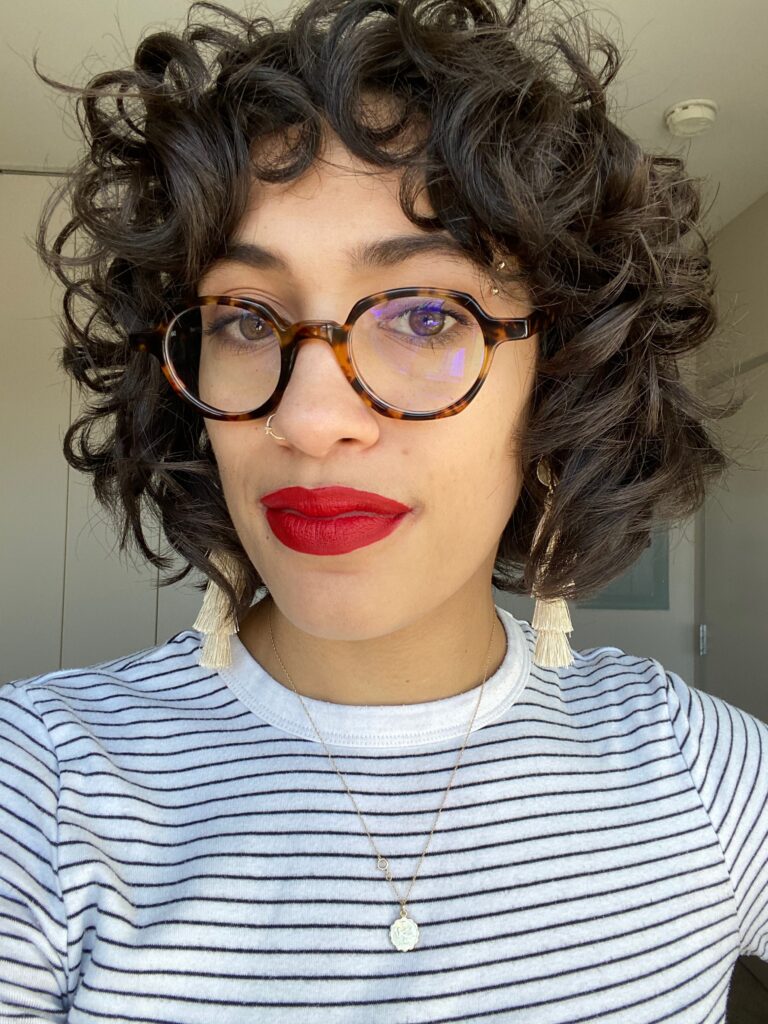
Nicole Huff is a PhD student in the English department at Michigan State University. She received her bachelor’s from Kalamazoo College and her master’s from DePaul University. Her research centers on Afrofuturism, gender and sexuality, pop culture with a focus on Black women in horror and fantasy, and Digital Humanities methods.
Austin Kemp – Web Editor
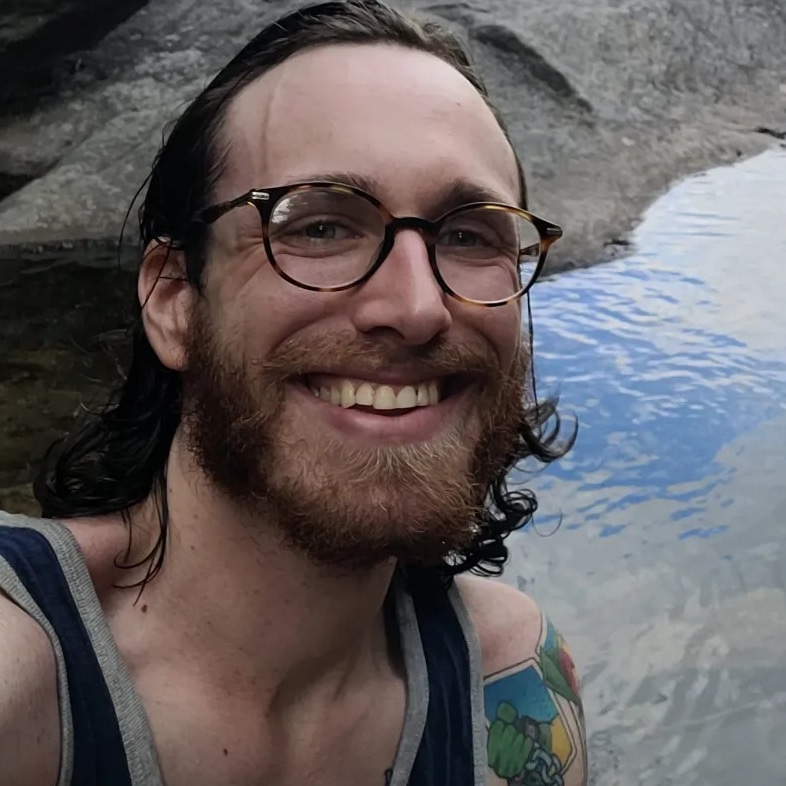
Austin (they/them) graduated with their MA in English from Brandeis University where comics quickly became the focal point of all study. They began their foray into comics studies with a semiotic deconstruction of American superheroes during WWII. They later punctuated their degree with a graduate paper contextualizing and analyzing Dennis O’Neil and Neil Adams’ Green Lantern/Green Arrow: Hard-Traveling Heroes through a historical lens in order to highlight shifts in dominant American ideologies in the 1970s. Austin’s current research lay in the intersectionalities of critical theory, superhero comics, and graphic medicine with their most recent work dealing in the application of Bakhtin’s chronotope to the comics form as a means of investigating graphic depictions of “crip time” in the hopes of widening awareness and using scholarship to create space for representations of invisible and visible illnesses. In the meantime, Austin passes the hours supporting local comic book shops, writing comics reviews (POP: Culture & Comics), and mustering motivation to write more.
